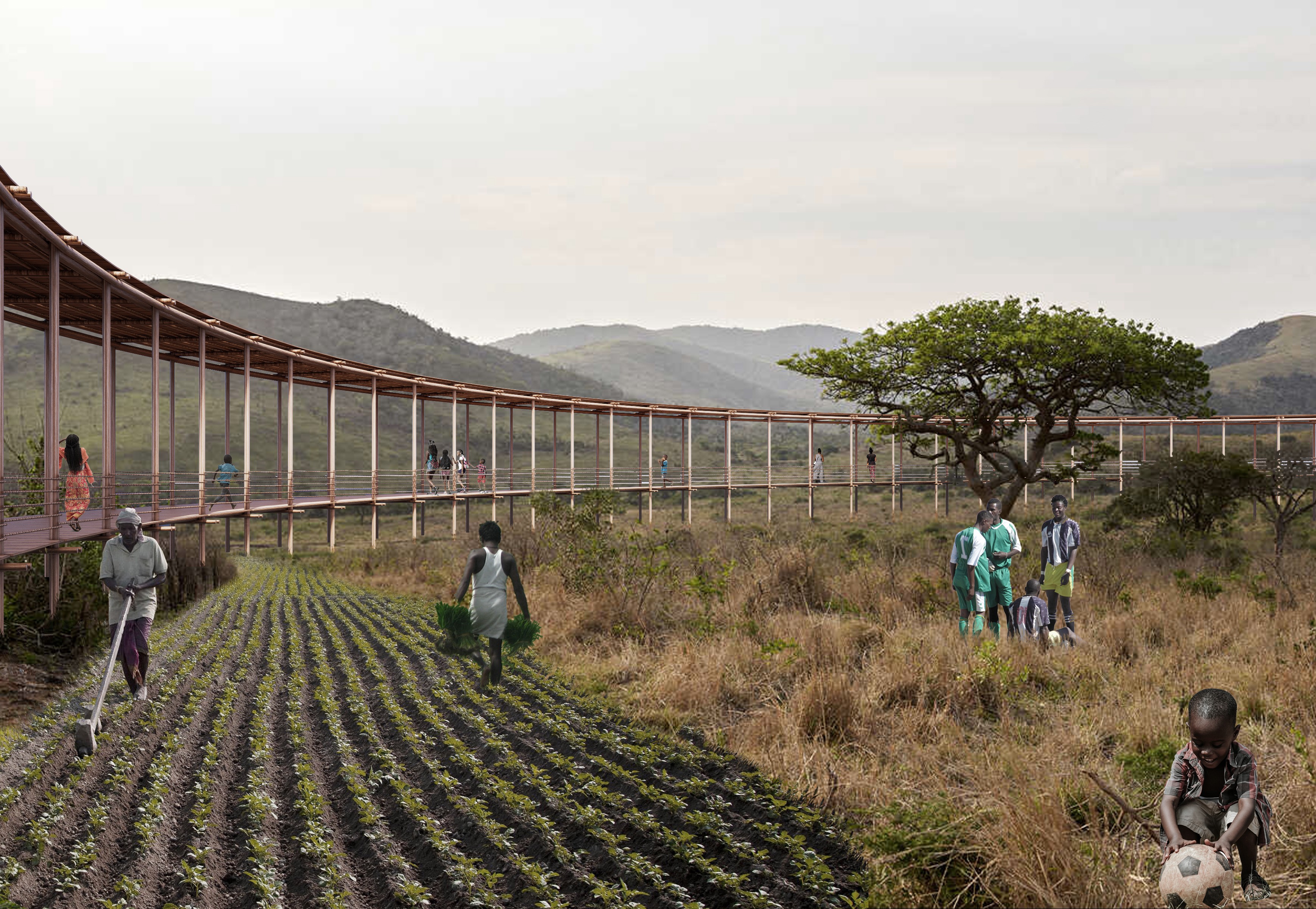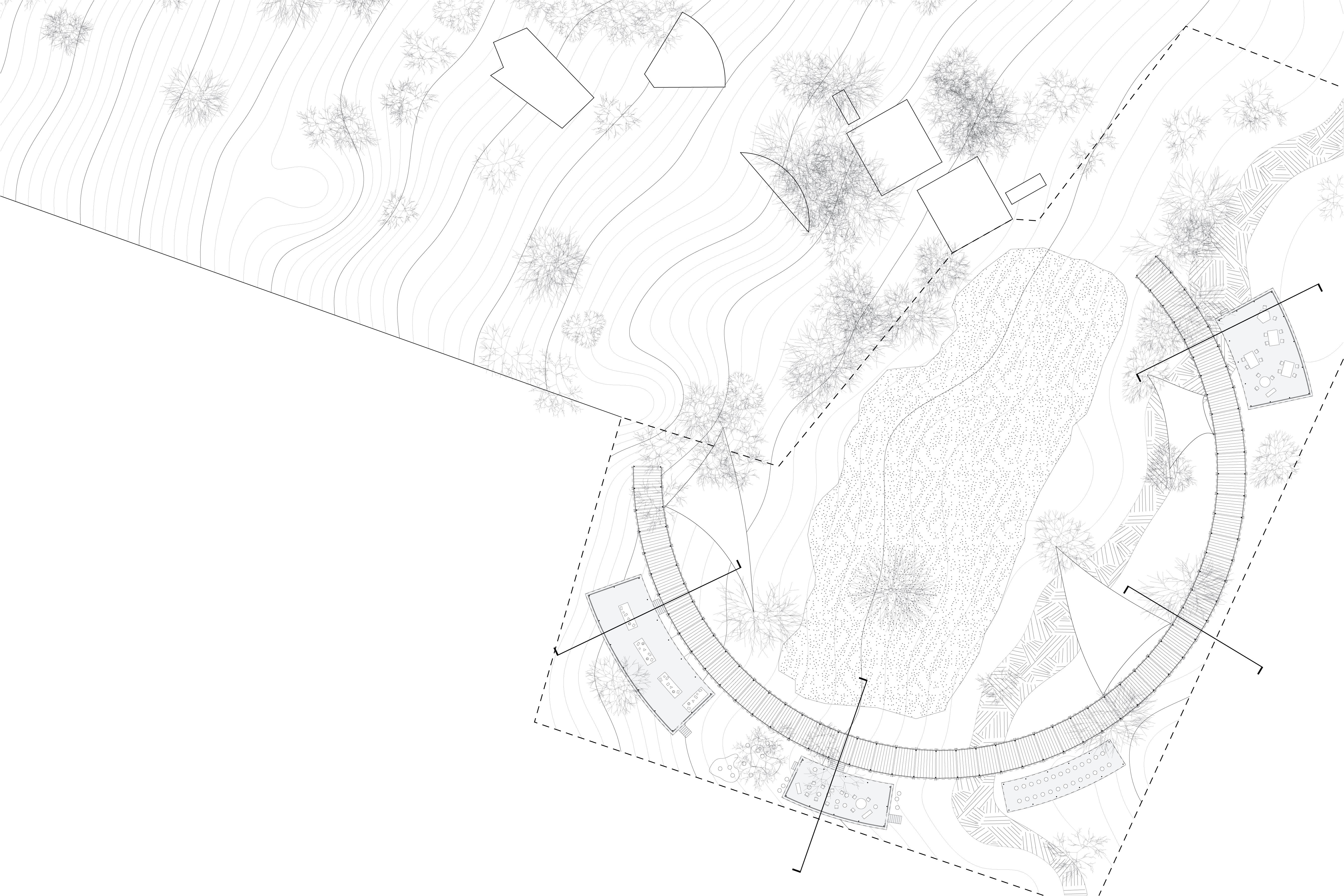Student’s Competition-Winning Design Concept to be Built in Kenya

In just five days, Hyungdoo Youn (B.ARCH 4th Year) created a design for what will become a future educational center in the Kenyan village of Dzunguni: a circular pavilion that can be used for farming, eating, composting, and watching soccer.
Youn’s design was created for 120 HOURS, an international design competition that tasks architecture students with creating a design from the ground up in just five days to solve, as the organizers put it, “a complex and socially relevant problem.” His design, titled The Cycle of Life, was selected as the winner of the 2021 iteration of the competition.
“Designing something in such a short amount of time requires you to be focused on proposing a strong idea, rather than to dive into the details of every corner of the building,” says Youn. “I spent most of my time developing the overall idea so that it could speak to the requirements as much as possible. Having a theme or concept is important in studio projects in school, but the 120 HOURS competition leans into it much more.”
The building will become a part of the Eco Moyo Centre, a Norwegian/Kenyan project that is dedicated to providing free primary education to the children of Dzunguni. The large circular structure encompasses an existing soccer pitch, with multiple rooms branching off. Within those rooms are a sharing kitchen, a composting classroom, and a farming classroom.
“My design proposes several buildings that contain the programs of each step of composting as classrooms so that Dzunguni villagers can easily learn and enjoy,” says Youn. “Here in the cycle, food waste will be sent back to nature and eventually it returns to people in the form of new food. It’s a healthy and constructive cycle where villagers can learn about positive interaction with the environment.”

The structure makes prominent use of dried palm leaves, which the locals traditionally use as a type of thatching in buildings. It makes up the exterior finishing of the building and speaks to the vernacular material of the area as well as the project’s desire to remain sustainable.
“I did not want to introduce a new material that didn’t seem to harmonize with the materials that were already seen in the site; instead I wanted to respect the identity and tradition that Dzunguni village has,” says Youn.
As the winner of the competition, Youn’s design will become the backbone of the educational center’s design, which is slated to be built at the Eco Moyo Centre by Architects Without Borders, Norway.
“There is a lot of potential in Hyungdoo Youn's proposal. With his project as a base for the structure, we will add ideas from other projects as well,” says Ingeborg Mull, a project manager for the 120 HOURS competition. “We are working closely with Eco Moyo, who will also have a voice in the development. They have certain needs and wishes for the project that we want to add to Hyungdoo’s structure.”